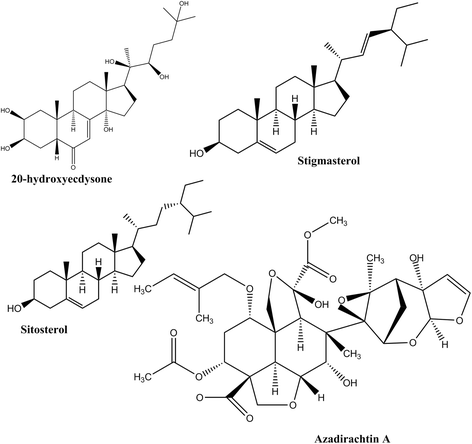Prospects for malaria control through manipulation of mosquito larval habitats and olfactory-mediated behavioural responses using plant-derived compounds
- PMID: 28412962
- PMCID: PMC5392979
- DOI: 10.1186/s13071-017-2122-8
Prospects for malaria control through manipulation of mosquito larval habitats and olfactory-mediated behavioural responses using plant-derived compounds
Abstract
Malaria presents an overwhelming public health challenge, particularly in sub-Saharan Africa where vector favourable conditions and poverty prevail, potentiating the disease burden. Behavioural variability of malaria vectors poses a great challenge to existing vector control programmes with insecticide resistance already acquired to nearly all available chemical compounds. Thus, approaches incorporating plant-derived compounds to manipulate semiochemical-mediated behaviours through disruption of mosquito olfactory sensory system have considerably gained interests to interrupt malaria transmission cycle. The combination of push-pull methods and larval control have the potential to reduce malaria vector populations, thus minimising the risk of contracting malaria especially in resource-constrained communities where access to synthetic insecticides is a challenge. In this review, we have compiled information regarding the current status of knowledge on manipulation of larval ecology and chemical-mediated behaviour of adult mosquitoes with plant-derived compounds for controlling mosquito populations. Further, an update on the current advancements in technologies to improve longevity and efficiency of these compounds for field applications has been provided.
Keywords: Anopheline mosquitoes; Integrated vector management; Larval habitat manipulation; Malaria; Mosquito functional ecology; Plant-derived compounds; Vector control.
Figures



References
-
- WHO. World malaria report. Geneva: World Health Organization; 2016. p. 1–186.
Publication types
MeSH terms
Substances
LinkOut - more resources
Full Text Sources
Other Literature Sources
Medical

